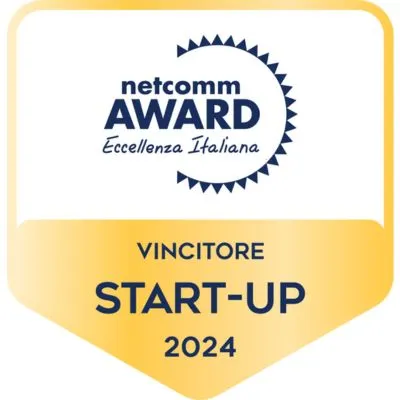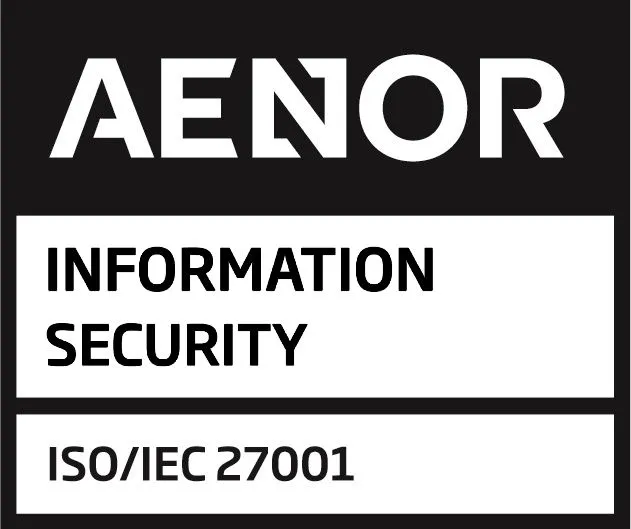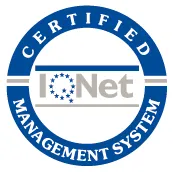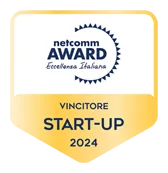
The job market is evolving at a rapid pace. The rise of artificial intelligence, automation, and new social dynamics is transforming not only how we work, but also what is truly valued in professionals. Identifying the most in-demand skills is now a priority for Human Resources teams looking to anticipate the future and attract top talent.
Is technical knowledge still enough? What skills will define the leaders of tomorrow? This article explores upcoming changes, debunks myths about soft and hard skills, and provides a practical guide on what to train employees in and how to detect talent that will make a difference in 2030.
Table of Contents
The new labor landscape towards 2030
The pace at which the world of work is transforming is unprecedented. Automation, AI, sustainability, and population aging are just a few of the forces reshaping the employment landscape. According to the World Economic Forum, by 2025, 50% of workers will need reskilling due to technological advancement, and by 2030, many professions will either disappear or be completely reinvented.
This new context demands that HR teams stop thinking in terms of static profiles and begin viewing talent as a dynamic ecosystem of skills. Hiring should no longer be based solely on prior experience or degrees, but on adaptability, continuous learning, and the ability to collaborate in hybrid environments.
Companies that understand this transformation will not only attract the best candidates but will also be better prepared to face uncertainty. In this changing environment, the most in-demand skills will be those that help navigate complexity: critical thinking, change management, problem-solving, and effective communication, among others.
New opportunities are also emerging for internal growth. Investing in upskilling (enhancing current skills) and reskilling (training for new skills) becomes not only a defensive strategy but a leadership move.
The key is to anticipate: understand trends, adapt to them, and prepare the organization for what lies ahead.

Soft skills vs. hard skills: Why technical know-how is no longer enough
For decades, the job market prioritized hard skills: technical knowledge, degrees, certifications. But that logic is becoming outdated. Today, the most in-demand skills go far beyond technical expertise: they focus on how a person thinks, relates, leads, and adapts.
So-called soft skills — such as communication, empathy, critical thinking, or emotional intelligence — used to be seen as a “plus.” Today, they are the true differentiator. In a changing environment, it is precisely these skills that allow professionals to face ambiguity, work well in teams, and stay motivated through change.
Hard skills: Necessary but not enough
While the labor landscape is evolving, hard skills remain fundamental. They represent the specific technical knowledge needed to perform tasks efficiently. However, in a market where technology is advancing rapidly, these competencies alone are no longer sufficient. Today, professionals are expected to combine this expertise with a flexible mindset, human capabilities, and digital fluency. Companies assume hard skills are a given; what they seek is something more.
Key hard skills that will remain relevant:
- Programming and data analysis: Understanding programming languages, extracting insights from large datasets, and automating processes will be a cross-functional competitive advantage.
- Industry-specific certifications: In fields like healthcare, engineering, or logistics, holding recognized accreditations ensures up-to-date knowledge and professional credibility.
- Foreign languages: English remains essential, but demand is also growing for German, French, Portuguese, Russian or Mandarin, especially in global or remote organizations.
- Financial or legal knowledge: Understanding budgets, regulations, or compliance enables professionals to contribute strategic value beyond their operational role.
AI and automation: What changes?
Artificial intelligence is already automating repetitive and technical tasks, from generating reports to basic coding. This creates a paradox: human skills become more valuable as technology advances.
What cannot be automated:
- Leadership in ambiguous contexts
- Ability to make ethical decisions
- Cultural adaptability and communication across diverse teams
- Creative problem-solving in novel situations
Soft skills: The new differentiator
In an increasingly automated environment, soft skills emerge as the true differentiator of human talent. They are difficult to measure, complex to teach, and nearly impossible to automate. Yet they are what enable teams to adapt, innovate, lead, and build strong relationships during times of uncertainty. In modern leadership, soft skills are not an add-on; they are a strategic necessity.
The most in-demand soft skills by 2030:
- Effective communication: The ability to express ideas clearly, tailor messages to the audience, and encourage active listening will be essential for leading and collaborating across diverse and distributed teams.
- Adaptability to change: In unpredictable scenarios, the willingness to adjust routines, embrace new ways of working, and stay motivated will make a significant impact.
- Critical thinking: Objectively evaluating information, questioning assumptions, and making well-founded decisions will be key in a data-saturated and complex world.
- Emotional intelligence: Managing one’s own emotions and understanding others’ will help build more empathetic, resilient, and cohesive teams.
- Conflict resolution: Addressing tensions, mediating among diverse interests, and transforming disagreement into alignment will be crucial for maintaining healthy collaborative environments.
Digital skills: The new cross-functional standard
In a world increasingly driven by technology, digital skills are no longer exclusive to tech profiles; they are now a cross-functional requirement in virtually every role. It’s not just about knowing how to use basic productivity tools, but understanding how systems interact, how digital processes integrate, and how to leverage collaborative platforms, data analysis, or automation. Digital literacy — the ability to understand, assess, and use technology critically — will become a core competency across all sectors. For HR, this means assessing each candidate’s digital level and fostering a culture of continuous upskilling so that all employees can adapt swiftly to new tools and workflows.
Key digital skills that will make a difference:
- Mastery of collaborative platforms: Proficiency in tools like Microsoft Teams, Slack, Notion, or Asana to work effectively in remote or hybrid teams.
- Data analysis: Ability to interpret dashboards, generate reports using Excel, Power BI, or Google Data Studio, and make decisions based on insights.
- Task automation: Knowledge of tools like Zapier, Make, or Power Automate to streamline repetitive processes.
- Basic cybersecurity: Understanding best practices to protect data, prevent fraud, and navigate digital environments safely.
- Digital content management: Skills to create and share relevant content on social media, blogs, or internal communication platforms.
- AI literacy: Understanding how algorithms and generative AI tools work and how they can be applied in the workplace.

Key emerging skills: What are employers of the future looking for?
In an increasingly uncertain labor market, employers are no longer just looking for experience or academic credentials. They want people who can learn quickly, adapt to change, thrive in digital environments, and add value in evolving roles. In fact, according to LinkedIn and the World Economic Forum, many of the most valued skills in 2030 don’t even have a name yet.
What defines an “emerging skill”?
- Responds to new demands of the digital and global environment
- Is transferable across multiple sectors and roles
- Is not covered in traditional university degrees
- Reflects the capacity for lifelong learning
10 key skills that will make a difference in 2030:
- Critical thinking and analysis: Evaluating information, detecting bias, and making reasoned decisions will be vital in a world flooded with data and misinformation.
- Active learning and curiosity: Professionals who pursue continuous growth, self-directed learning, and trend awareness will have a clear advantage.
- Complex problem-solving: Tackling new challenges without predesigned solutions will require creativity, initiative, and tolerance for failure.
- Emotional intelligence and empathy: Understanding and managing emotions will help build resilient, cohesive, and motivated teams.
- Adaptability and tolerance for ambiguity: Flexibility in the face of the unexpected and maintaining productivity through change will be essential assets.
- Interdisciplinary and remote collaboration: The ability to work with people from diverse backgrounds and geographies will become the norm; clear communication and digital empathy will be crucial.
- Advanced digital literacy: Understanding the operation and implications of digital tools, from AI to automation, will be a baseline requirement even in non-technical roles.
- Innovation capacity and entrepreneurial mindset: Generating new solutions, spotting opportunities, challenging the status quo, and taking calculated risks will fuel internal transformation.
- Social awareness and sustainability: Companies seek talent aligned with values. Understanding social, environmental, and ethical challenges will be as important as managing KPIs.
- Time management and strategic prioritization: The ability to focus, avoid digital distractions, and organize tasks in a multitasking world will be key to maintaining productivity without burnout.
Strategic training: How to develop the talent of the future
Identifying the most in-demand skills is only the first step. The real challenge lies in developing those competencies within the organization. In an environment where change is constant, training can no longer be a one-off event. It must become a continuous, agile culture aligned with business goals.
Where should companies invest?
- Upskilling: Enhancing current employee skills. For example, a sales rep learning process automation or an analyst deepening their knowledge of AI tools.
- Reskilling: Re-training individuals for new roles. An admin becoming a data manager or a technician learning predictive maintenance.
- Soft skills training: Investing in human skills is as important as technical ones. Programs on leadership, active listening, emotional management, or critical thinking should be part of daily development.
- Personalized and adaptive learning: Digital tools that adjust to individual pace and learning style, such as microlearning platforms, virtual reality, or AI-driven education.
Discover how Vip Connect helps you design and deliver personalized learning — quickly and effortlessly.
How to build an effective training strategy
- Ongoing diagnostics: Use surveys, interviews, or competency evaluations to detect real skill gaps.
- Involve leaders: Mid-level managers should be champions of learning, not just passive recipients.
- Measure impact: KPIs such as post-training performance, turnover, or team satisfaction help validate the return on investment.
Developing talent is not a luxury; it’s a competitive necessity. The difference between a company that leads change and one that struggles often lies in how it trains its people.
Beyond the resume: How to evaluate skills in interviews
In an environment where soft skills take center stage and degrees no longer guarantee success, traditional selection methods fall short. Evaluating the most in-demand skills requires new ways to identify a candidate’s real potential.
Techniques to evaluate soft skills
- Behavioral interviews (competency-based): Questions like “Tell me about a time you had to resolve a team conflict” allow you to see how the person behaves in real scenarios. Look for answers structured using the STAR method (Situation, Task, Action, Result).
- Role playing or simulations: Placing the candidate in a realistic scenario — such as leading a difficult meeting or solving a customer issue — shows critical thinking, communication, and emotional management in real time.
- 360° evaluations or feedback from past experiences: Request references focused on behavior and work style, not just results. For example: “How did they handle stress?”; “Were they collaborative or independent?”
How to detect adaptability and growth mindset
- Explore how the person has responded to career changes
- Ask about recent self-directed learning experiences
- Evaluate curiosity and openness with questions like: “What have you learned on your own in the past six months?”
Useful digital tools
- Psychometric tests: Measure traits such as resilience, empathy, or analytical thinking.
- Soft skills assessment platforms: Tools like Pymetrics, TestGorilla, or HireVue combine data science with gamified dynamics to evaluate non-technical skills.
Preparing the present to lead the future
Work is changing — not slowly and predictably, but profoundly and rapidly. Companies that wait to “see what happens” risk being left behind. Those that understand today which will be the most in-demand skills in 2030 — and begin developing, attracting, and evaluating them strategically now — will be positioned at the forefront.
The challenge for HR teams is significant: they must lead a transformation that affects everything from hiring strategy to the organization’s learning culture. But it is also an opportunity: never before has HR played such a decisive role in business competitiveness.
Investing in talent is not just about training or hiring: it’s about building a workforce ready for the unknown, equipped with the technical, human, and digital tools to adapt, innovate, and thrive.
Now that you know the landscape, the key skills, and the strategies to develop and evaluate them, the question is: What concrete steps can your HR team take today to build the talent your company will need tomorrow?
New to Vip District? Contact us and find out what our platform has to offer!








